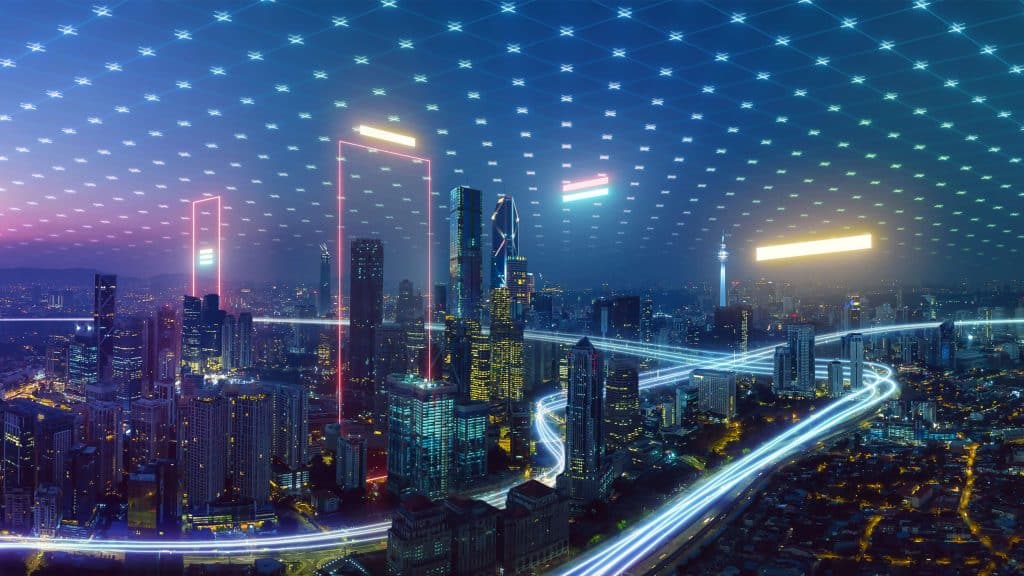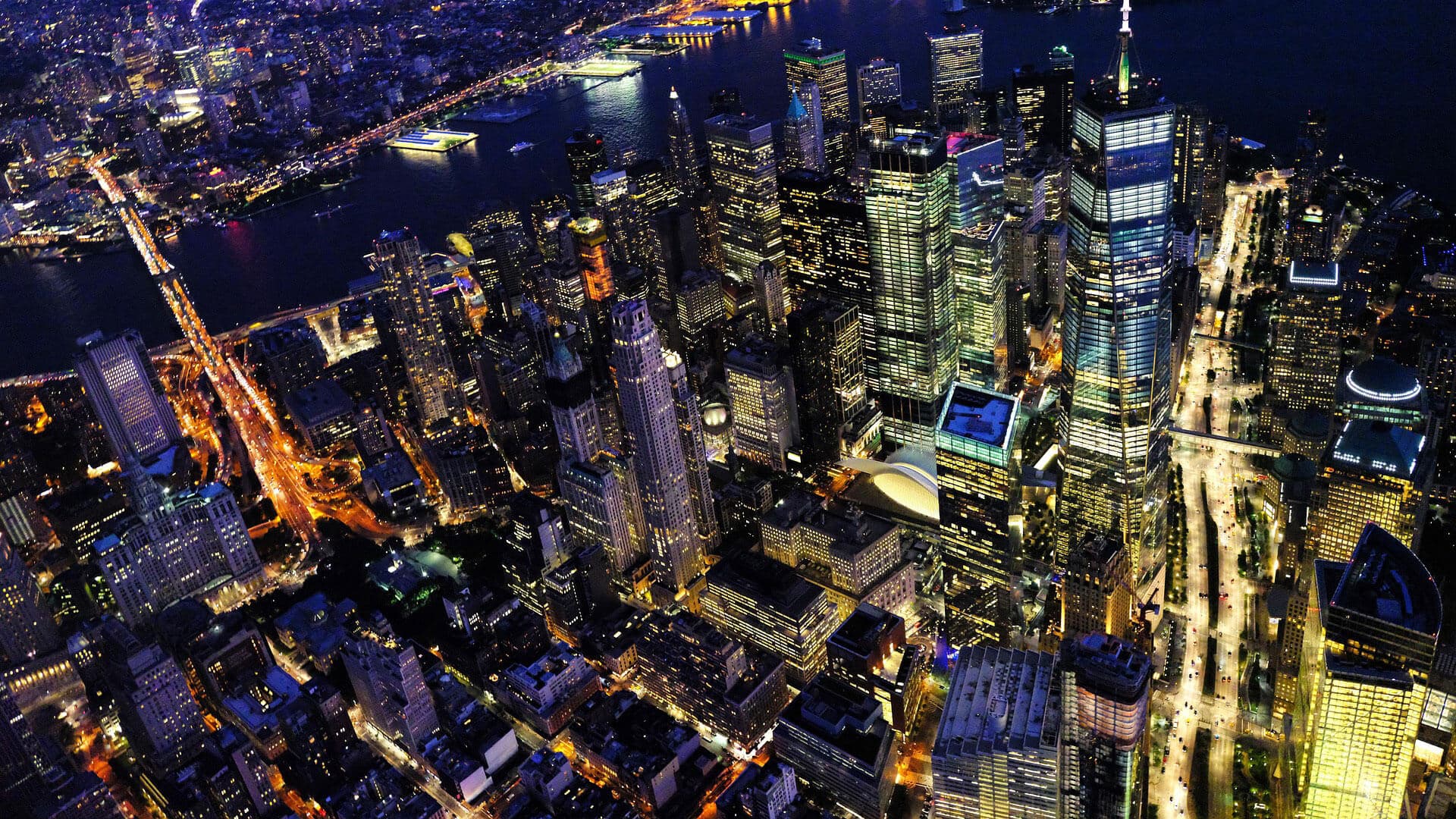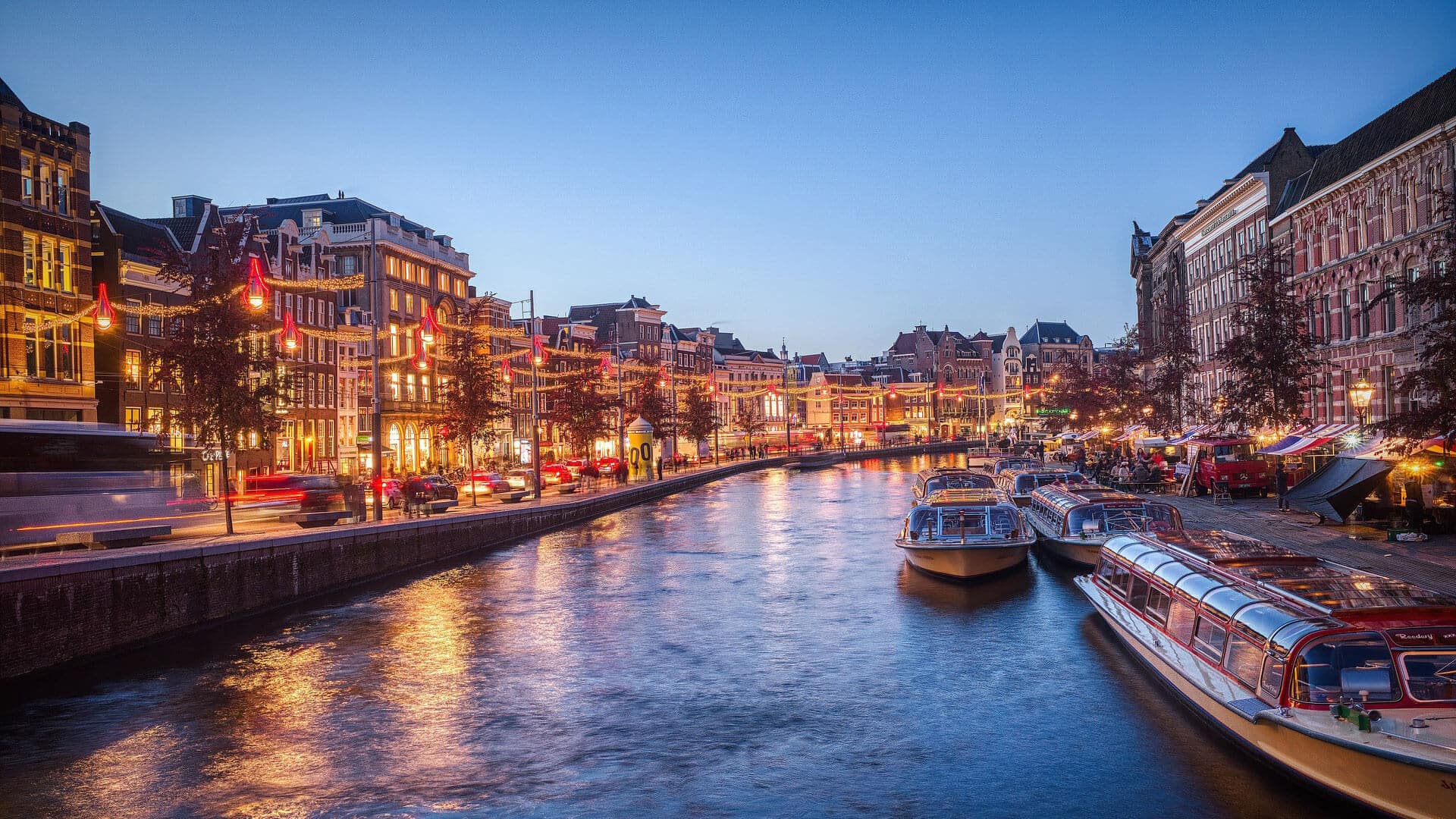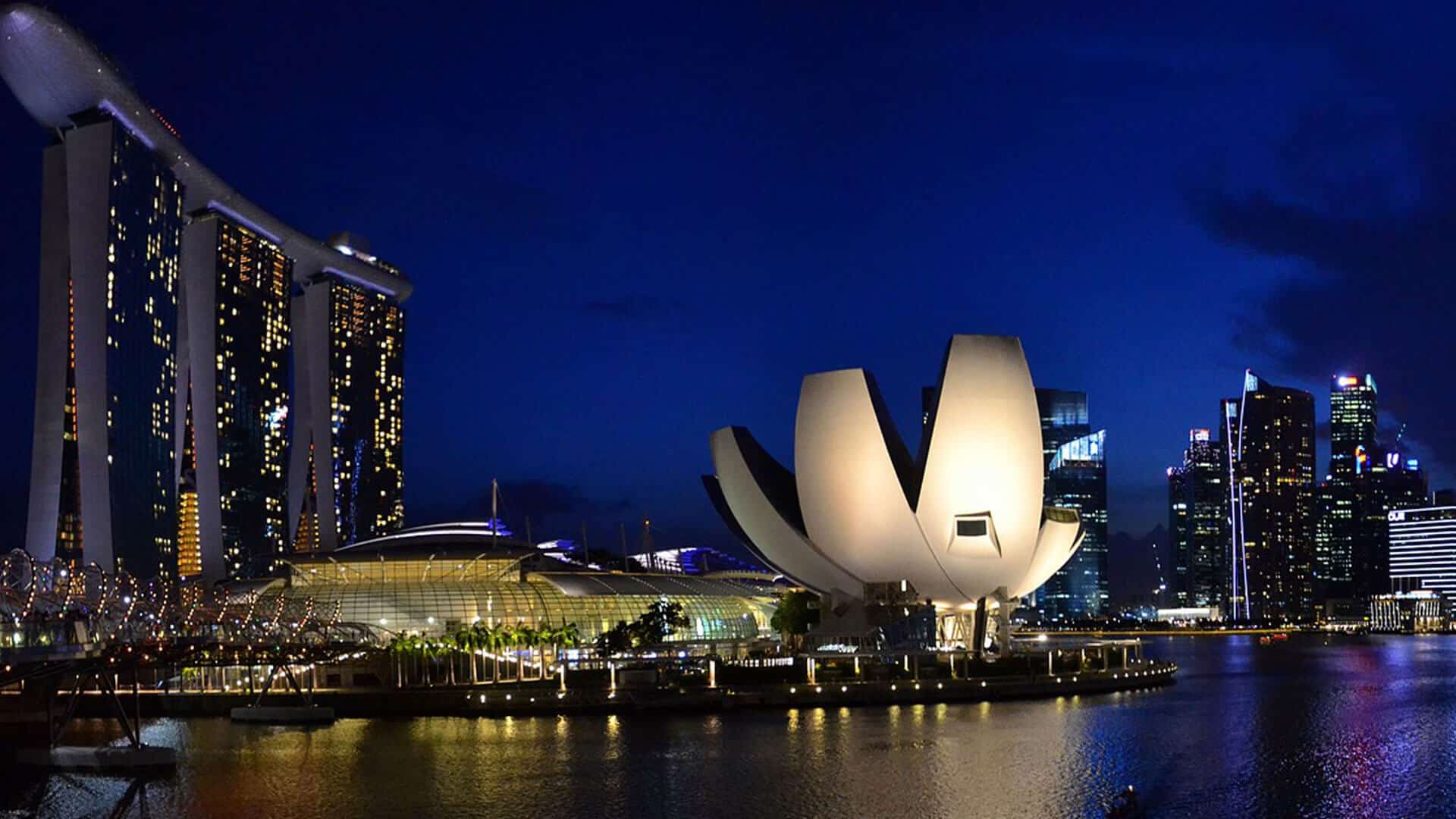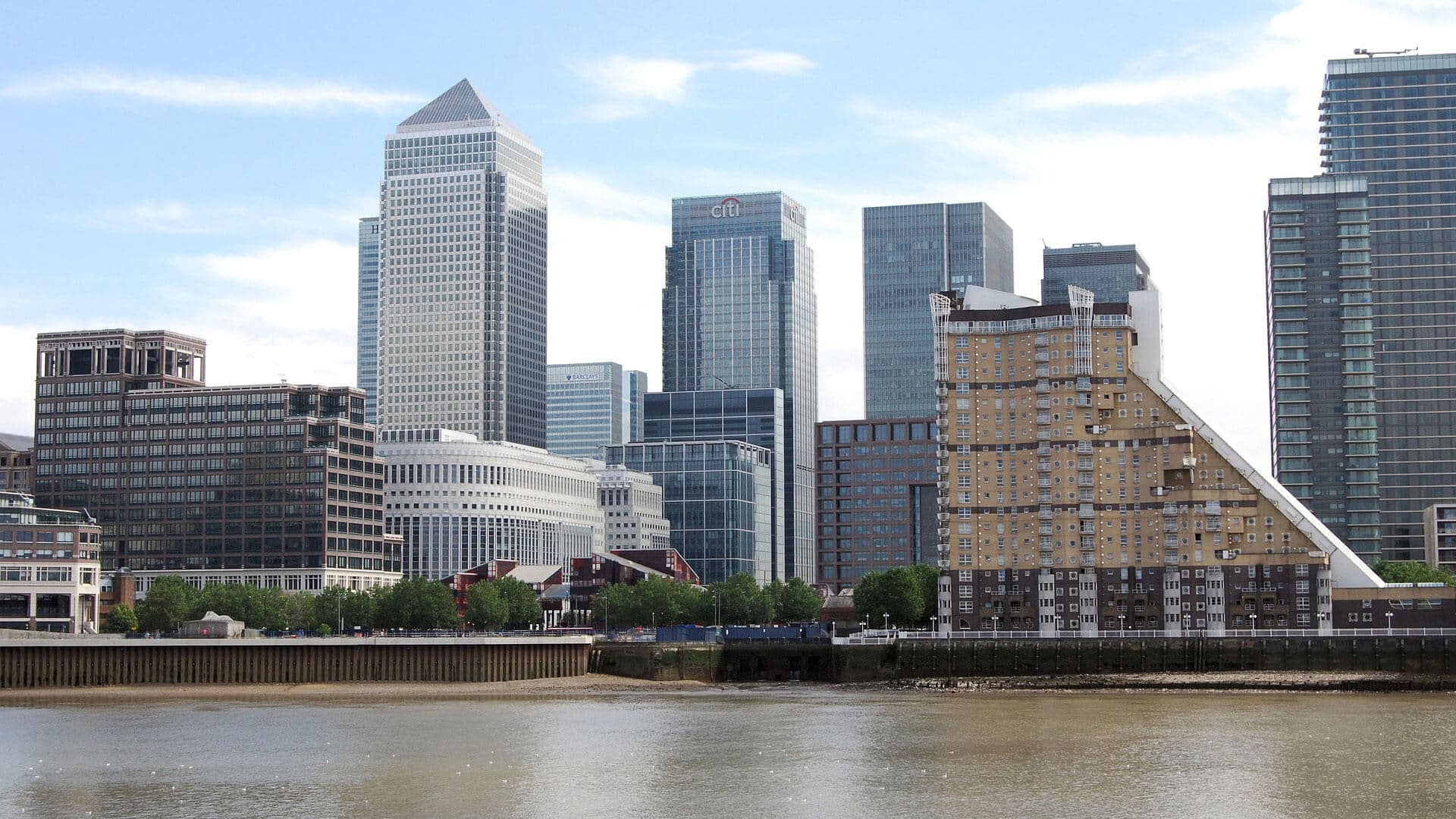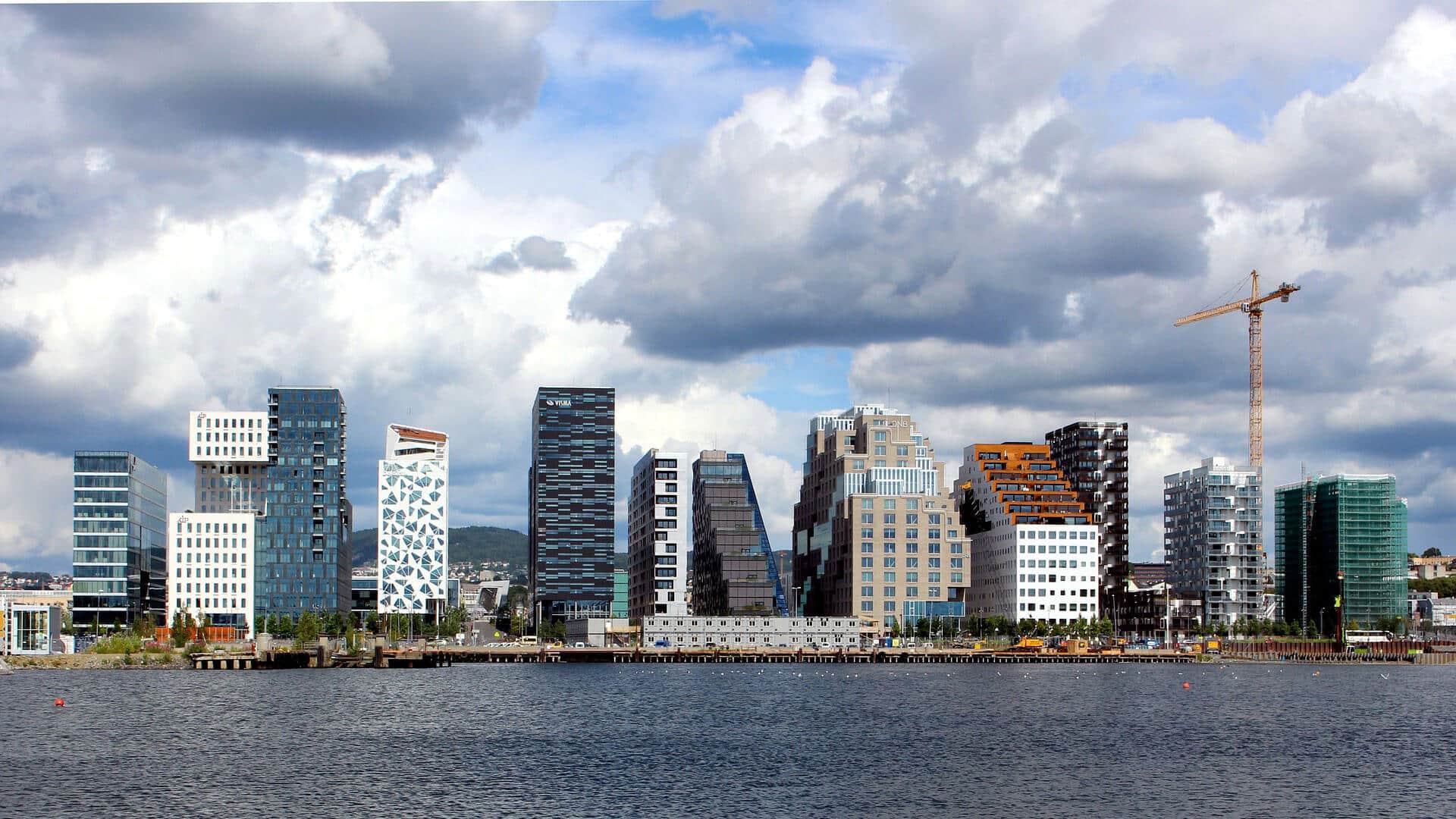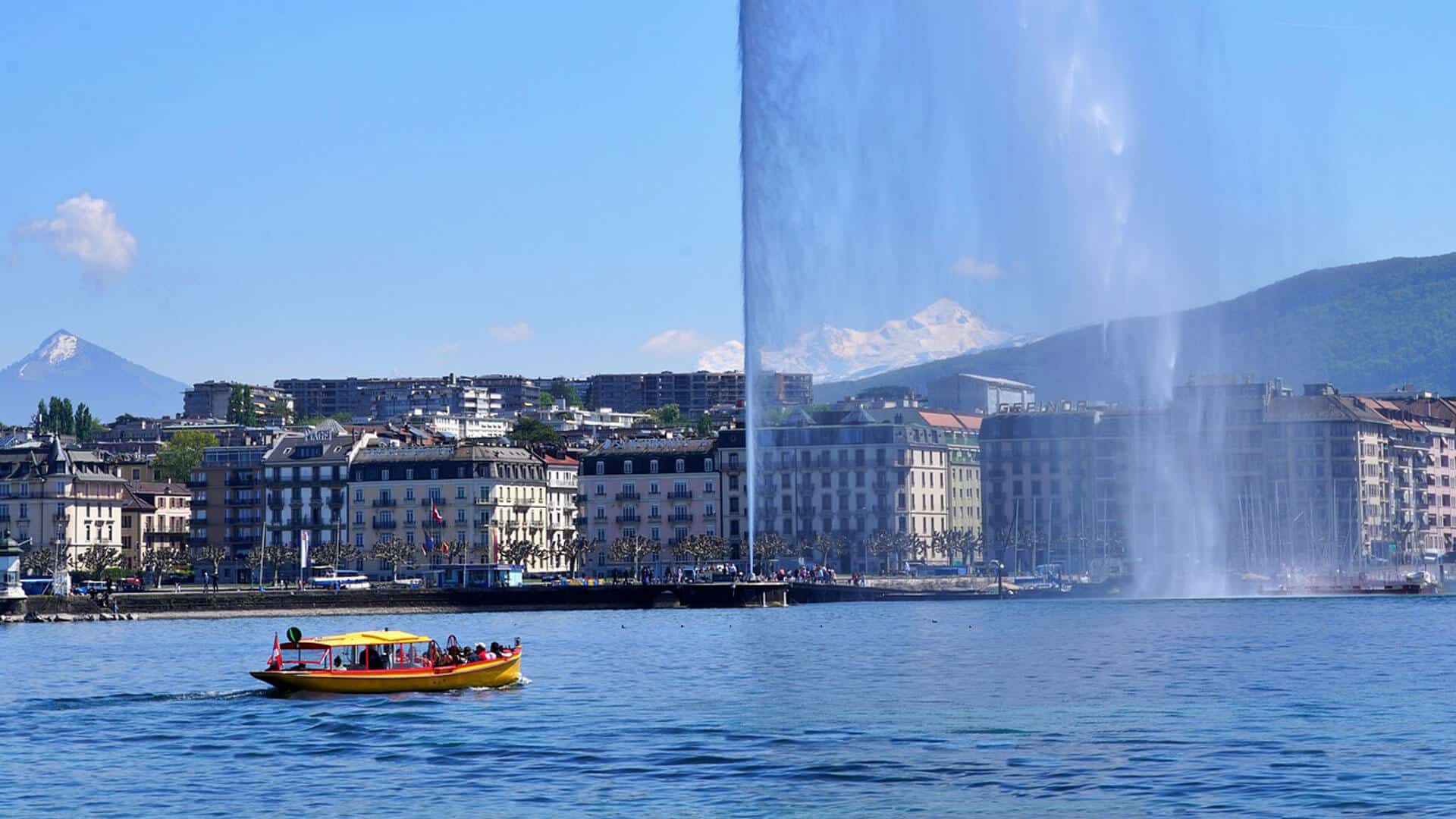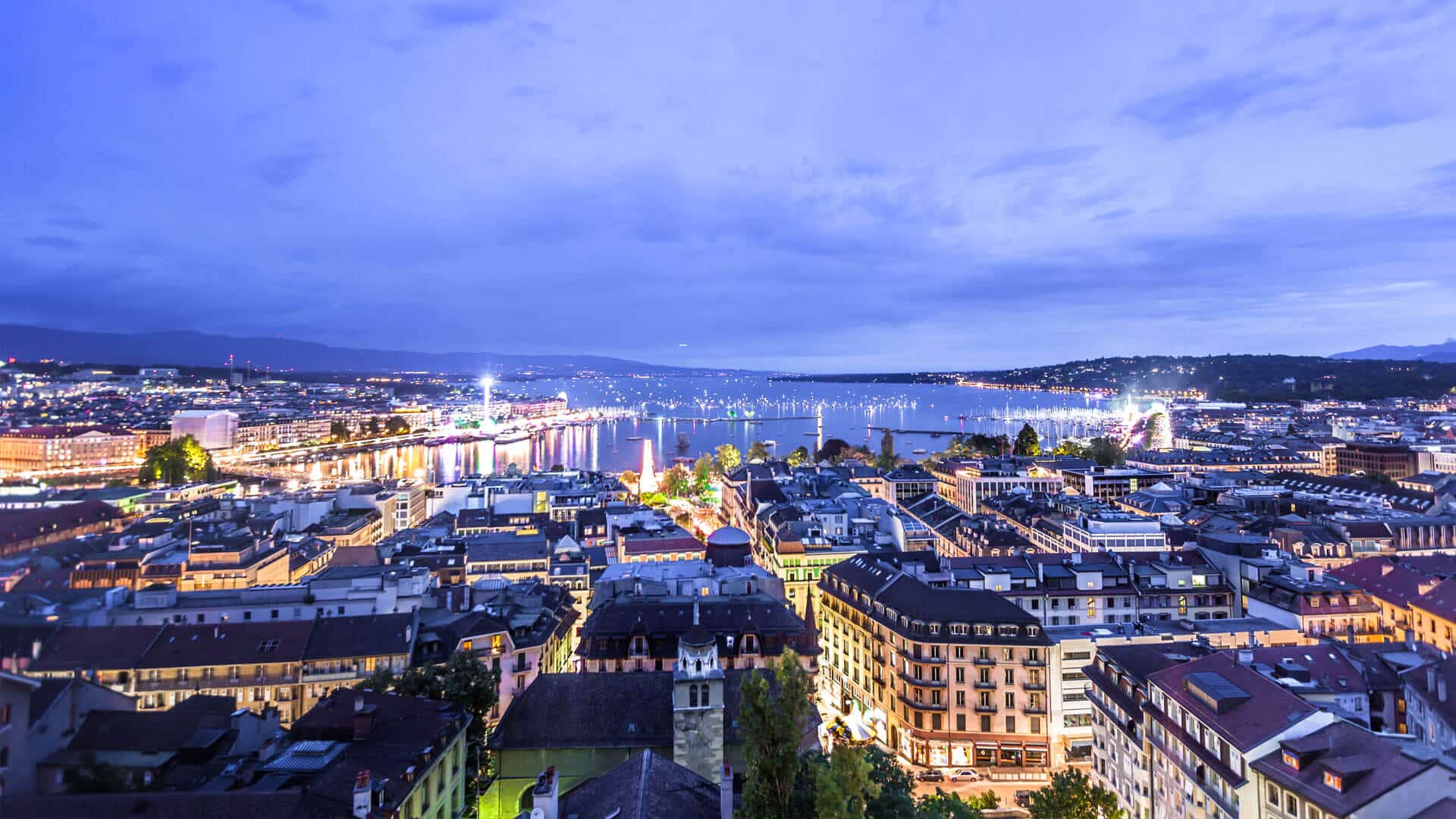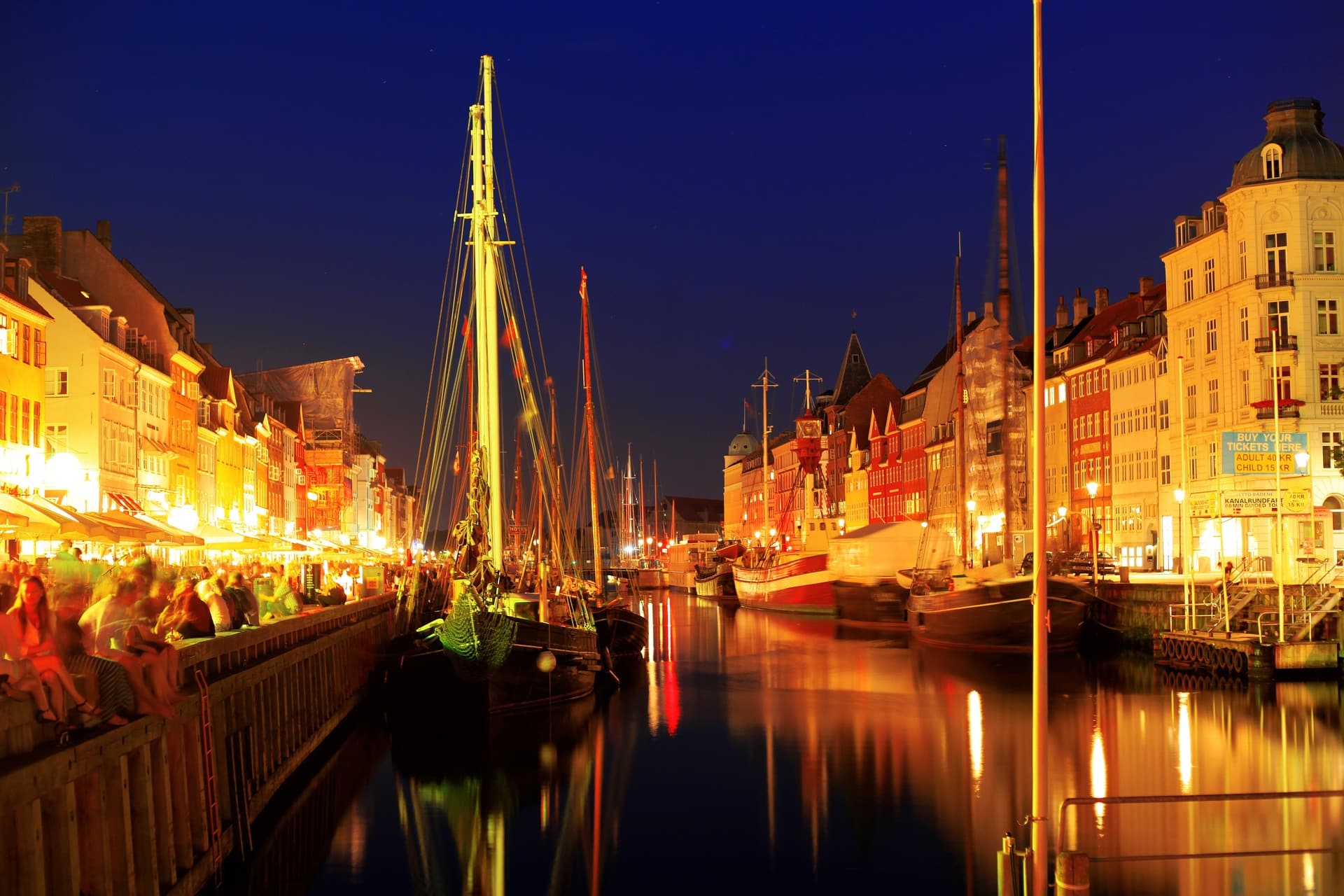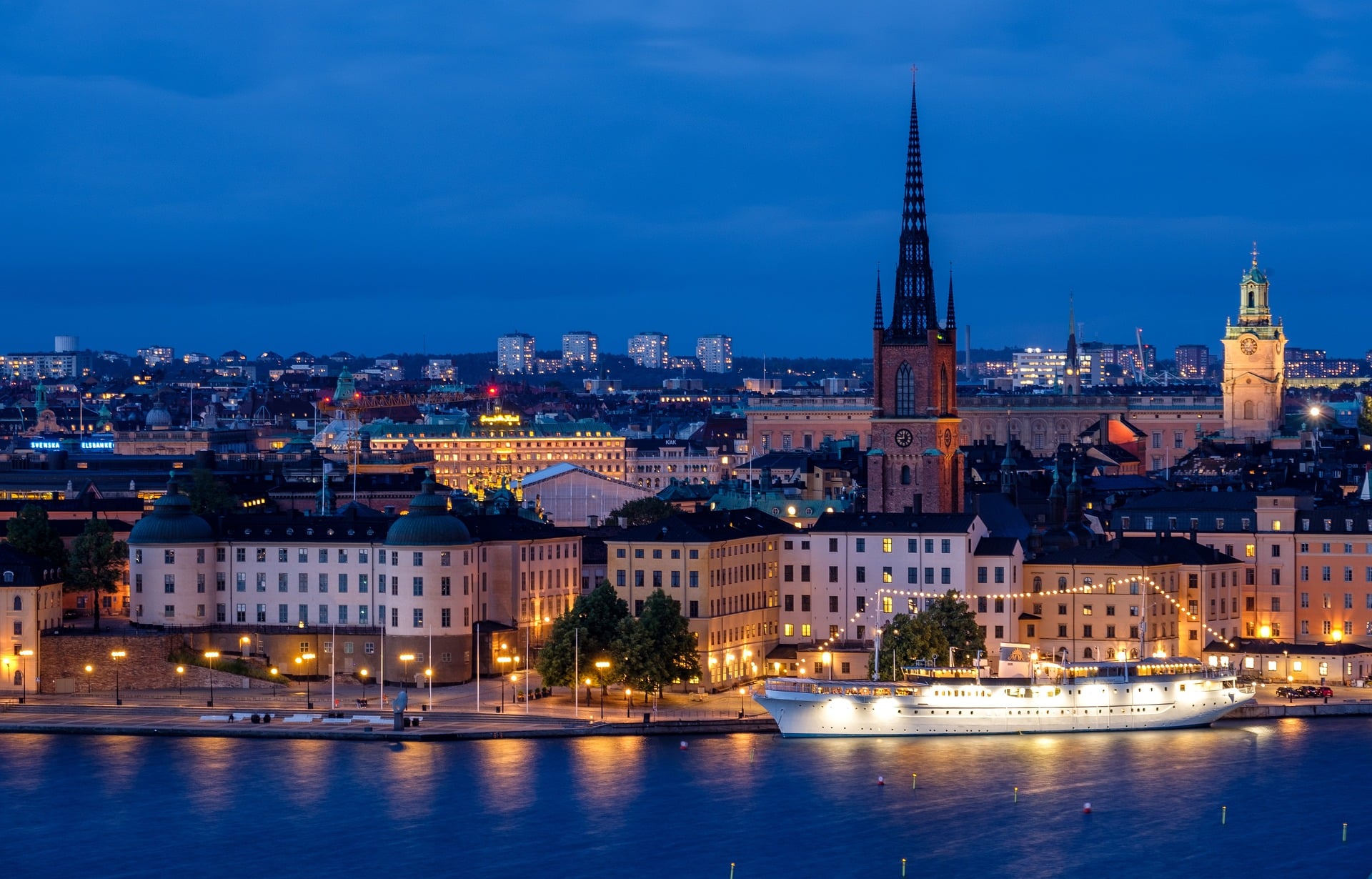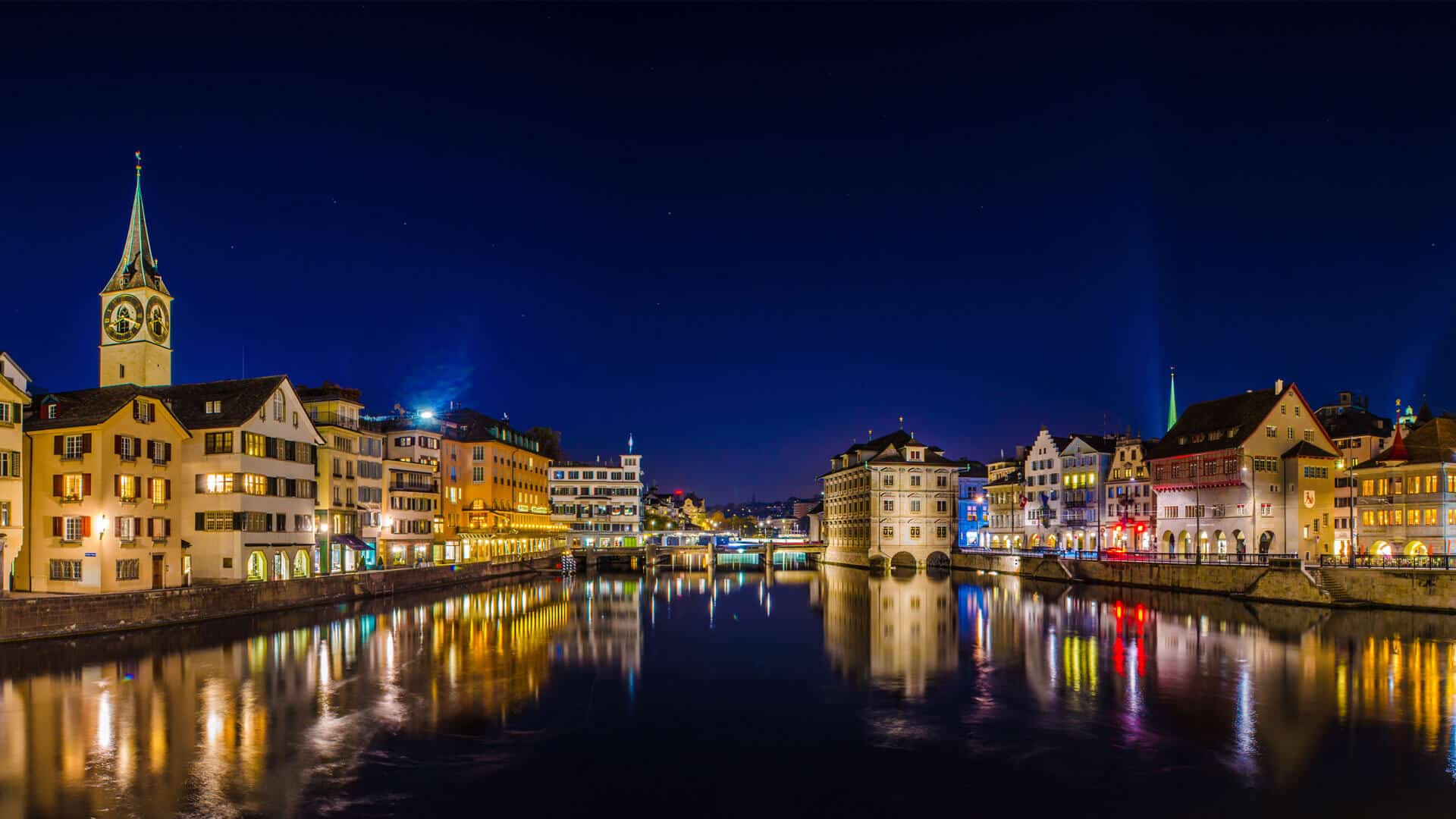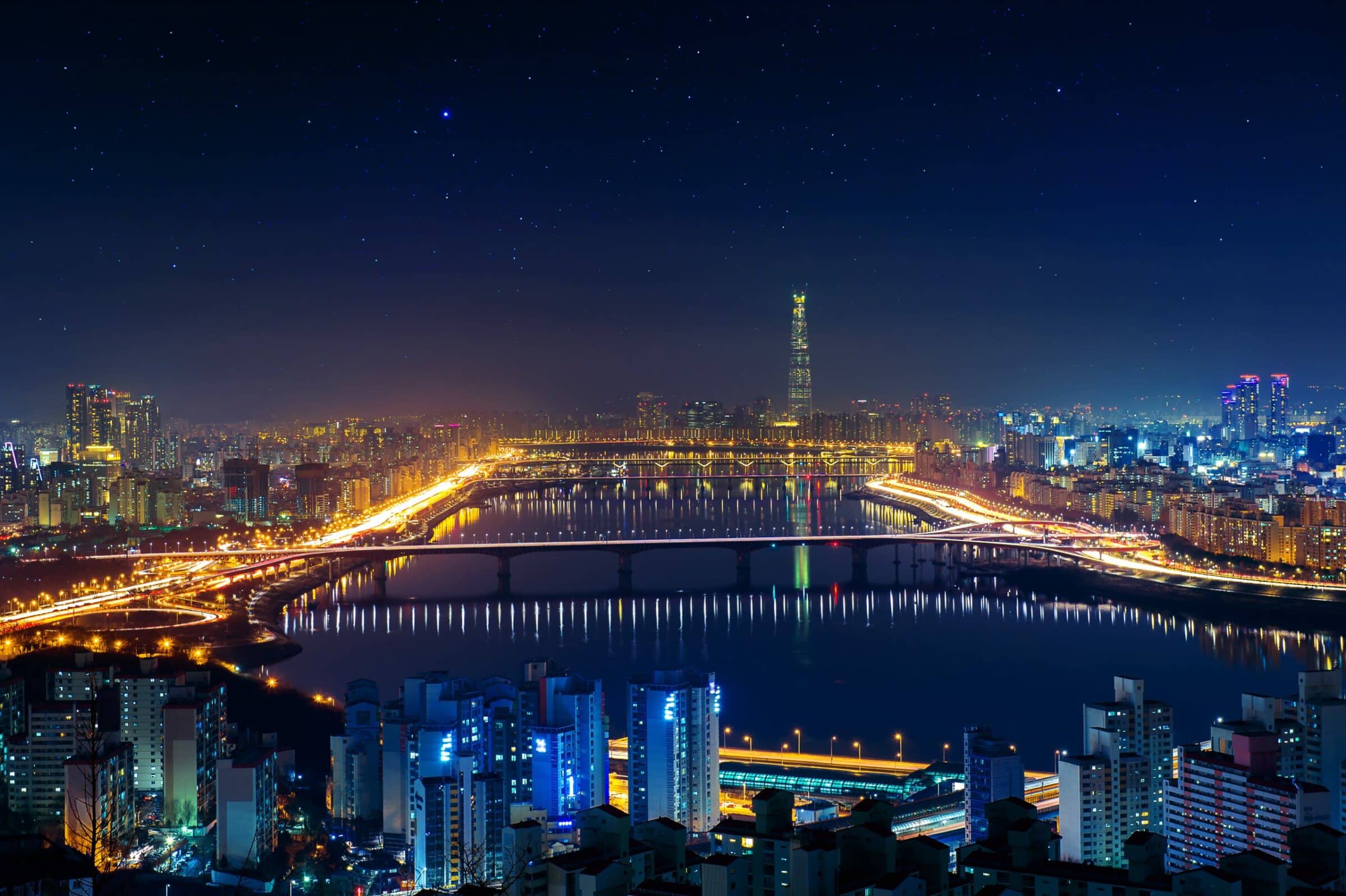Smart cities are becoming more and more popular as technology advances and we become more connected.
The introduction of sensors and active data allows cities to become more efficient, sustainable and liveable.
Technology using the Internet of Things (IoT) plays a vital role in transforming a city into a smart city, as it allows devices to be connected and share data.
So which cities are using this data and leading the way in terms of smart city development?
Here are 14 of the top smart cities in the world:
The 14 Top Smart Cities in the World Are:
- Barcelona
- New York
- Amsterdam
- Singapore
- London
- Oslo
- Geneva
- Helsinki
- Tokyo
- Copenhagen
- Stockholm
- Zurich
- Taipei City
- Seoul
Let’s get into each of them individually:
1) Barcelona
Top of our list is Barcelona, a pioneer in smart city initiatives, setting the pace for other cities around the globe.
From a free Wi-Fi network covering the entire city to a real-time energy management system helping to save on resources, Barcelona has implemented a number of innovative projects to cement itself as a leading smart city.
A range of apps are being worked on by local administrations to help residents and visitors make the most of the city – from finding a parking spot to locating the nearest electric vehicle charging station.
Barcelona currently has over 20,000 active sensors, capturing temperature, mobility and air quality data, amongst other things, to help make the city more efficient.
One of the most notable systems in Barcelona is the CityOS platform, which helps the city manage a number of different systems, including energy, transportation and waste management.
Better yet, Barcelona is also working on plans to make all public transportation emissions-free by 2025.
2) New York
With hundreds of smart sensors and miles of fibre optic cable already installed, New York is quickly becoming one of the smartest cities in the world.
The Big Apple has been working on a number of innovative projects to improve the lives of residents and make the city more sustainable
For instance, the NYC Smart Streets initiative is working on installing smart streetlights, traffic signals and pedestrian crossing signals, which will adjust in real-time to changing conditions.
The city is also trialling a number of smart parking solutions to help drivers find available spots, as well as electric vehicle charging stations.
New York has started to replace phone booths with a series of smart hubs offering citizens contactless technology, WiFi and online charging stations.
In terms of sustainability, New York has set a goal to reduce greenhouse gas emissions by 80% by 2050. The city is also working on plans to make all public transportation emissions-free by 2030.
3) Amsterdam
The Dutch capital has been paving the way for smart city management through the Amsterdam Smart City programme.
Floating villages, connected homes and 3D-printed buildings are just some of the other smart city initiatives being worked on in Amsterdam. The aim of the game for the Dutch capital is to achieve sustainable city goals, such as slashing CO2 emissions by 40% by 2025. Better yet, Amsterdam is also working on plans to make all public transportation emissions-free by 2025.
A number of innovative projects are already underway, such as the roll-out of electric car-sharing schemes and the development of a real-time energy management system.
That’s not to mention the solar-powered bus stops, lights and billboards seen throughout the city. Smart streetlights are being installed throughout the city, which will be able to dim their ultra-low energy LED lights automatically when no one is around, saving on resources.
4) Singapore
Thanks to the S$50 million (GBP 30.71 million), Singapore is set to become Asia’s leading smart city.
Singapore’s Green Building Masterplan is part of the 80-80-80 initiative, which aims to make 80% of buildings in Singapore green by 2030.
One of the most impressive projects occurring in Singapore is the Smart Nation initiative, which aims to harness technology to make everyday living easier for residents.
A number of apps have been developed as part of the initiative, such as a parking app that helps drivers find available parking spots, as well as an e-scooter sharing scheme. The city-state is also working on plans to roll out a nationwide WiFi network and a contactless payment system.
In terms of sustainability and transportation, Singapore has set a goal to reduce its carbon emissions intensity by 36% and make all public transportation emissions-free by 2030.
Looking ahead, Singapore aims to build a vehicle-free smart city made up of over 42,000 eco-homes!
5) London
After being named the most intelligent city in Europe back in 2016 (https://medium.com/business-chief/top-10-smart-cities-in-europe-cd137bce2df1, 2020), London has continued to make strides in the smart city space with the aim of being the world’s smartest city.
One of the major focus points for the British capital is improving air quality, with a number of initiatives already underway, such as retrofitting bus stops with air purifiers and installing electric vehicle charging points. The city’s goal is to reduce its carbon emissions by 60% by 2025.
A number of smart city technologies are being trialled in London, such as an app that helps residents find available parking spots and a contactless payment system for public transportation.
London is also home to a number of smart buildings, such as the world’s first Passive House office block.
The Smart London Board is a group of experts that advise the Mayor of London on how to make the city more efficient, sustainable and liveable. They’re constantly working on a number of initiatives to make the city smarter, such as the development of a real-time energy management system and the roll-out of electric car-sharing schemes.
6) Oslo
The Norwegian capital is one of the world’s most sustainable cities with a number of ambitious goals in place for its future making it the ideal smart city.
With the aim of being carbon-neutral by 2030, Oslo is heading towards its goal with all power and no gas since non-electric vehicles will be banned in the city by 2025.
Incentives, like free parking, lower taxes, lower tolls and use of the bus lane, have been introduced to increase the adoption of electric vehicles to great success.
This environmentally-conscious measure led to 70% of Oslo’s 2020 car sales being for electric vehicles.
That’s before we even mention the zero-emission construction sites, their circular waste management system or the retrofitting of existing buildings to be more energy efficient!
7) Geneva
With ambitions of being 100% renewable by 2050, Geneva is one of the greenest cities on our list.
In 2018, the Swiss city launched its Smart City Geneva initiative with a focus on four main pillars: energy, mobility, digital and waste.
A number of impressive smart city projects have been rolled out as part of the initiative, such as an electric car-sharing scheme and a smart parking system that works using a series of sensors linked to the driver’s phone.
In addition to its solar power plant, Geneva has a waste-to-energy plant that uses recycled waste (39% of the city’s overall waste) to create electricity and heat.
The city is also home to a number of smart buildings, such as the Swiss headquarters of Google, which has been designed to be completely zero-emission.
8) Helsinki
Helsinki is one of the world’s most functional cities, using a wealth of open data, evolving technology and progressive thinking to improve the lives of its citizens.
According to Jan Vapaavuori, the Mayor of Helsinki, the city’s open-minded data policy attracts many pilot projects, keeping the city one foot ahead of other smart cities. Through this open data analysis, the city is able to make informed decisions regarding city planning and upcoming projects.
But it’s not just about open data in the Finnish capital. With the aim of being carbon-neutral by 2035, Helsinki build sustainably, consume less and reduce traffic emissions by 69% in the same year by converting to electric public transport.
In addition to this, a waste management system has been implemented in the city, transporting waste via an underground pipe system.
Helsinki carries a strong ecological mindset, helping it remain at the forefront of innovation and environmental change.
9) Tokyo
Much like Oslo, most of Tokyo’s smart city policies centre around being energy smart.
With a population of over 37 million people, Tokyo is one of the world’s largest cities, so creating a more efficient and environmentally friendly way of life is important in the modern day.
The Japanese metropolis has a number of smart city technologies in place, such as an intelligent transportation system that uses sensors to monitor traffic flow and reduce congestion. Electric vehicles have also taken the Japanese giant by force, helping them astronomically lower their CO2 emissions.
Tokyo is also home to a number of smart buildings, such as the Tokyo Skytree, which uses solar panels and wind turbines to generate power, and the NEC Supertower, which has a rainwater harvesting system in place.
Although much of the city’s efforts were aimed at optimising the city for the 2020 (or 2021) Summer Olympic Games, the city is still reaping the rewards for its technological advancements through IoT.
10) Copenhagen
By taking a green approach to improving the quality of life of its citizens, Copenhagen has transformed into an environmentally conscious smart city that easily makes it onto our list.
With the aim of being the world’s-first carbon neutral capital by 2025, a range of initiatives have been put into place to help Copenhageners live a more sustainable life, such as smart street lights and sustainable transportation. In fact, over one million bike journeys are made every day in the Danish capital, helping reduce greenhouse gas emissions by 90,000 tons each year.
GPS is used across the bus network, connecting with apps to help people plan their journeys and track their progress. Likewise, an app has been developed that helps drivers find available parking spots in the city, making driving a more efficient process.
IoT technology is used in sewers and bins across the city, helping assess traffic, air pollution and CO2 emissions through sensors. Additionally, a new government scheme provides free access to public data sources, helping the city make informed decisions regarding city planning and development.
11) Stockholm
After winning the World Smart City Award in 2019, Stockholm has solidified itself as one of the world’s top smart cities.
Much like other cities on our list, Stockholm’s smart city policies are largely based on sustainability and reducing its carbon footprint. In fact, the Swedish capital has reduced its CO2 emissions by 25% since 2010 and is on track to be completely fossil fuel-free by 2050.
With the city-wide aim of being climate-positive by 2040, Stockholm uses a range of IoT SIM cards in smart technologies. This data allows city officials to manage and optimise energy efficiency, water and waste management, air pollution and transportation.
On the topic of transportation, real-time data is collected from 3,000 vehicles to help officials manage traffic flow and reduce congestion. This initiative has helped Stockholm’s public transport system become one of the most punctual in the world.
12) Zurich
Zurich’s transformation into a smart city began with an innovative streetlight project in 2009.
By replacing 2,000 old street lights with LEDs, the city not only saved money on energy costs but also reduced its carbon emissions by 1,290 tonnes each year.
Now, all of Zurich’s streetlights are fitted with sensors that automatically dim or brighten depending on the level of ambient light. This smart streetlight technology has helped the city save an additional 2,800 tonnes of CO2 each year.
In addition to streetlights, Zurich has also installed a number of smart traffic lights that are fitted with sensors that detect the presence of pedestrians and cyclists. This has helped to reduce accidents at intersections by up to 60%.
This technology has expanded across the city, with a range of sensory technologies being used to collect environmental data, which can measure the flow of traffic all while acting as a public WiFi antenna.
To help manage the city’s waste more efficiently, Zurich has also developed a smart bin that can compact rubbish and send a message to city officials when it needs to be emptied. This initiative has helped reduce the amount of waste being sent to landfill each year by 1,500 tonnes.
13) Taipei City
Green buildings, efficient transportation, effective resource allocation and cleaner energy are just some of the key elements of Taipei City’s smart city success.
Sensors are used across the city to help officials with a range of tasks, from monitoring air pollution to managing energy consumption.
This data is then fed into a centralised system that helps officials make informed decisions about the city’s development. With this data, citizens can use an app called Taipei Navi to help locate their vehicle’s location, making day-to-day life that bit easier.
Smart meters have been installed in all of Taipei City’s buildings, helping to reduce energy consumption by 5%. Visualisations of water, electricity and gas consumption have also been installed in public houses to encourage energy-saving behaviours.
In addition, the city has also developed a number of sustainable initiatives, such as the world’s largest solar-powered bus stop.
Thanks to the adoption of IoT technology and the use of big data analysis, Taipei City has reduced its carbon emissions by 25,000 tons, saving its local government an enormous NT$ 265 million (£7.2 million).
14) Seoul
The last addition to our list is the capital of South Korea, Seoul. And just because it’s last doesn’t mean that it’s any less impressive – in fact, Seoul is one of the most technologically advanced cities in the world.
IoT technology is used across the city to help with a range of tasks, from solving crimes to managing traffic and monitoring air quality. This data is then fed into a centralised system that helps officials make informed decisions about the city’s development.
Senior citizens who live alone are benefitting from the city’s smart transformation, with environmental sensors monitoring helping to ensure their safety and wellbeing.
The sensors could detect a lack of movement over a certain period of time, abnormal temperatures, humidity or lighting, and will then contact either their relevant careworker or emergency services.
Seoul is looking to continue developing its technology and usage of data with the introduction of an AI detective programmed to flag potential crime patterns. The city is also aiming to have all of its buildings fitted with solar panels by 2030, with the eventual goal of being powered entirely by renewable energy.
Get Smart with Caburn Telecom
So there you have it, our pick of the top smart cities in the world. These are just a handful of examples of how cities are using IoT technology and data to improve efficiency, reduce costs and make life easier for their citizens.
At Caburn Telecom, we understand the importance of efficient communications for a city that wants to operate at its full potential. We offer a range of solutions that can be tailored to the specific needs of your organisation, including IoT SIM cards, low-power networks, multi-network operations and international roaming.
To find out more, contact a member of our team today.
